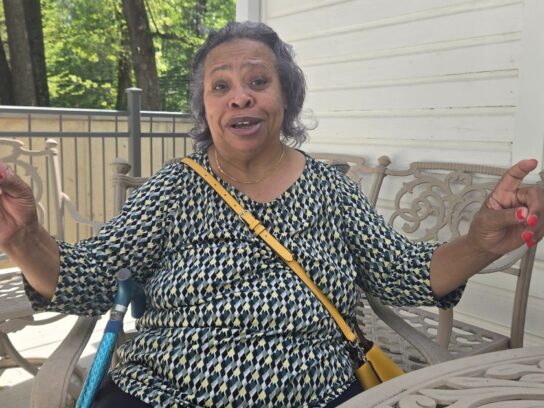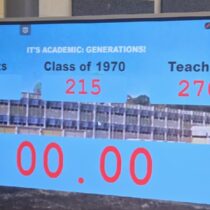
When Charlotte Evonne was a child growing up in the Scotland community in Montgomery County, she didn’t know any White people.
She used an outhouse and oil lamp. The family had no refrigerator. Yet many of the nearby White residents enjoyed the benefits of electricity.
The one thing Evonne definitely had was the Scotland A.M.E. Zion Church, which was built by hand by newly freed Blacks. There she attended Sunday School and many neighborhood events.
She attended an all-Black school until she was 12 and her family moved to Washington, D.C. “I went to a colored school,” she explained following the ribbon cutting of the church she has always known.
The church has been closed since 2019 when flooding, enhanced by building in the area that sent water down to where the church is located on Seven Locks Road, damaged its foundation.
Her mother worked as a maid for a White family.
Her parents sheltered her daughter from the ugliness of the world. In fact, when she entered first grade, her teacher had to show her how to flush the toilet. She had never seen plumbing like that before.
“Mom didn’t go where we would be called names,” she said, adding that she was 9 years old when she was called the N word for the first time. “We didn’t go where we would have our feelings hurt, because they knew what it felt like,” she said of her parents.
When they did go anywhere, they had to enter through the back door. She vividly recalls going through the back door of a nearby restaurant run by Spiro Agnew.
“I got to have hot French fries with ketchup for the first time,” she recalled.
Although she loved those fries, they left a bitter taste in her mouth as she recalled walking in the back door, handing over her money, and depending on the whim of Agnew and others at the restaurant, she sometimes got her fries and sometimes didn’t.
When she heard he was elected Vice President, she was astounded. “I don’t believe he deserved that because of his nature.” She added, “You try to be that person – do the right thing – and then you see that [other] person get ahead.”
When Agnew was forced to resign, “I felt he got his just desserts when they pulled him down.”
Evonne went on to be a bus driver and security worker for Montgomery Public Schools. She also worked at a paint company, where she faced discrimination and realized she would never get ahead or fair pay if she stayed.
“It was a good old boys’ network. That’s what the Black people called it,” she said.
Now in her seventh decade, she marvels at how much the world has changed. When asked if she ever thought the local community, regardless of race or religion, would step up and help rebuild her beloved church, Evonne replied, “No, I never thought that. The others never showed an interest in us before.”


Comments are closed.